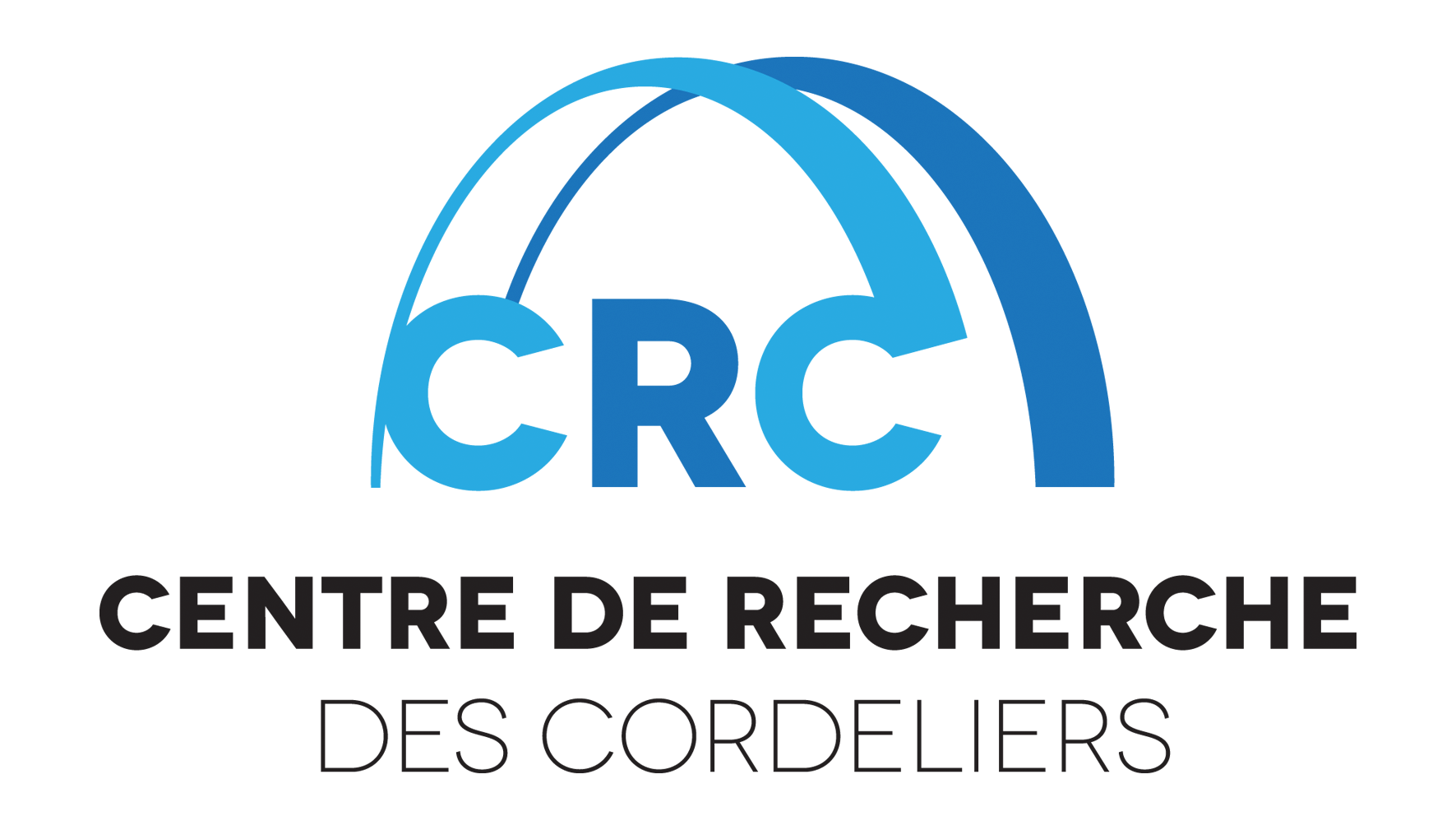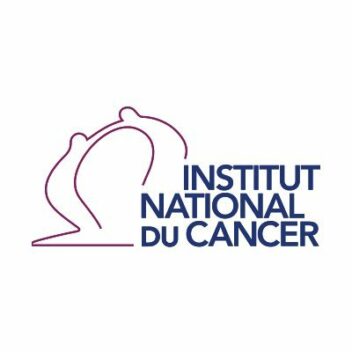Personalized medicine, pharmacogenomics, therapeutic optimization : MEPPOT

Director :
Pierre Laurent-Puig

Deputy Director :
Sophie Mouillet-Richard
Since the inception of our research unit, we are dedicated to the improvement of personalized medicine, mainly in the cancer field through 3 axes. Our first research axis is centered on the elucidation of the diversity of different tumor types (colon, lung, pancreas) through molecular profiling of large collections of tumors. Part of these studies is made possible thanks to our close links with HEGP.


A second axis is the development of new biomarkers for diagnosis and prognosis in various cancers (colon, lung, pancreas, stomach, ovary). This axis encompasses basic science for the identification step, technology development (microfluidic tools) to optimize detection, large-scale validation and transfer to the clinics (e.g. detection of miR31 as a predictive and prognostic factor for the response to anti-EGFR therapy in colon cancer).
We are also developing liquid biopsy monitoring approaches that allow detection of rare, non-targeted genetic or epigenetic alterations for patient follow-up. Finally, we developed a therapeutic axis, which focuses on the design of innovative suicide-gene strategies for cancer and we are applying pharmacogenomics to improve the efficacy of existing anti-cancer treatment. We are also exploring molecular pathways sustaining the cell response to various types of stress, notably those promoted by immunosuppressive and anti-cancer drugs.
Key-words: Cancer, biomarker, Liquid Biopsy, Microfluidics, Translational research, Personalized medicine, cancer metabolism
Scientific Themes
Personalized Medicine and Pharmacogenomics Group
Our cancer projects globally aim at providing physicians with state-of-the-art, efficient and accurate tools to take care of patients in the framework of precision medicine. To reach this goal we have the following specific objectives: 1/ deciphering the diversity of different types of solid tumors, 2/ developing biomarkers to better define the prognosis and the efficacy of treatment, 3/ developing specific therapeutic strategies notably based on our knowledge of tumor diversity.
Translational research and Microfluidics
Our aim is to develop and use droplet-based microfluidic systems to perform experiments that are out of the possibilities of existing technologies. We develop new tools, procedures and strategies for Cancer Research with three major focuses: (i) Creating new generations of devices for the non-invasive detection of Cancer biomarkers with applications in personalized medicine, cancer recurrence detection and cancer diagnostics; (ii) Highlighting of new Cancer biomarkers; (iii) Developing whole platforms for toxicological analysis of chemical and drugs.
Reprogramming of mitochondrial metabolism in the CMS subtypes of colon cancer
We are interested in providing new insights into the metabolic hallmarks of the consensus molecular subtypes (CMS) of colon cancer, focusing on the analysis of mitochondrial energy metabolism (fatty acid oxidation and respiratory chain).
Cell stress responses in acute and chronic kidney injuries
Our aim is to understand how cellular adaptive biological processes activated upon kidney injury participate in tissue remodeling, ultimately leading to chronic kidney disease.
The Biological Resource Center (BRC EPIGENETEC)
The Biological Resource Center (BRC EPIGENETEC) was created to manage the thousands of samples essential to our research. The BRC is an essential part of our research group : It is both a conservation center and a service provider whose purpose is to ensure the quality, security and sustainability of biological resources.
SIRIC CARPEM
Since 2011, eight Sites Intégrés de Recherche sur le Cancer (SIRIC) have been labeled in order to optimize and accelerate the production of new knowledge and to promote their dissemination and application in the management of cancer. The SIRIC CARPEM directed by Pr Pierre LAURENT-PUIG is located in this team.
Main publications
Wnt, Glucocorticoid and Cellular Prion Protein Cooperate to Drive a Mesenchymal Phenotype with Poor Prognosis in Colon Cancer. S. Mouillet-Richard, A. Gougelet, B. Passet, C. Brochard, D. Le Corre, C. L. Pitasi, C. Joubel, M. Sroussi, C. Gallois, J. Lavergne, J. Castille, M. Vilotte, N. Daniel-Carlier, C. Pilati, A. de Reyniès, F. Djouadi, S. Colnot, T. André, J. Taieb, J.-L. Vilotte, B. Romagnolo, P. Laurent-Puig. Journal of Translational Medicine, 2024 Link.
PrPC Controls Epithelial-to-Mesenchymal Transition in EGFR-Mutated NSCLC: Implications for TKI Resistance and Patient Follow-Up. C. Lailler, A. Didelot, S. Garinet, H. Berthou, M. Sroussi, A. de Reyniès, S. Dedhar, S. Martin-Lannerée, E. Fabre, F. Le Pimpec-Barthes, A. Perrier, V. Poindessous, A. Mansuet-Lupo, F. Djouadi, J.-M. Launay, P. Laurent-Puig, H. Blons, S. Mouillet-Richard. Oncogene, 2024 Link.
STAT3 Drives the Expression of ACSL4 in Acute Kidney Injury. V. Poindessous, H. Lazareth, G. Crambert, L. Cheval, J. L. Sampaio, N. Pallet. iScience, 2024 Link.
Downregulation of Mitochondrial Complex I Induces ROS Production in Colorectal Cancer Subtypes That Differently Controls Migration. J. Bastin, M. Sroussi, I. Nemazanyy, P. Laurent-Puig, S. Mouillet-Richard, F. Djouadi. Journal of Translational Medicine, 2023 Link.
Circadian Rhythm and Circulating Cell-Free DNA Release on Healthy Subjects. G. Poulet, J.-S. Hulot, A. Blanchard, D. Bergerot, W. Xiao, F. Ginot, A. Boutonnet-Rodat, A. Justine, G. Beinse, V. Geromel, L. Pellegrina, M. Azizi, P. Laurent-Puig, L. Benhaim, V. Taly. Scientific Reports, 2023 Link.
All publications













